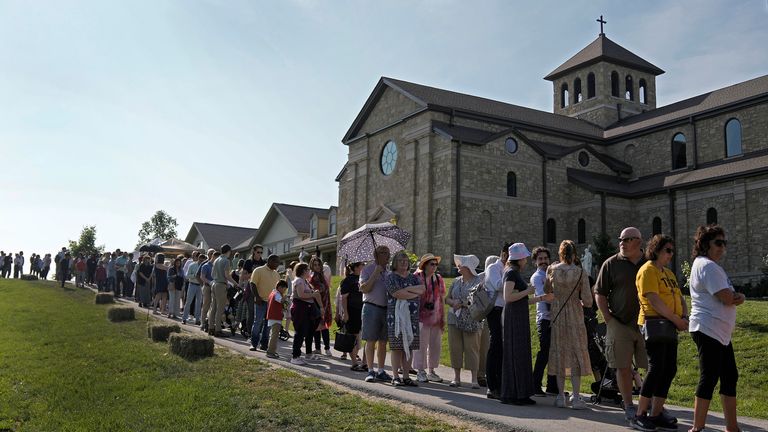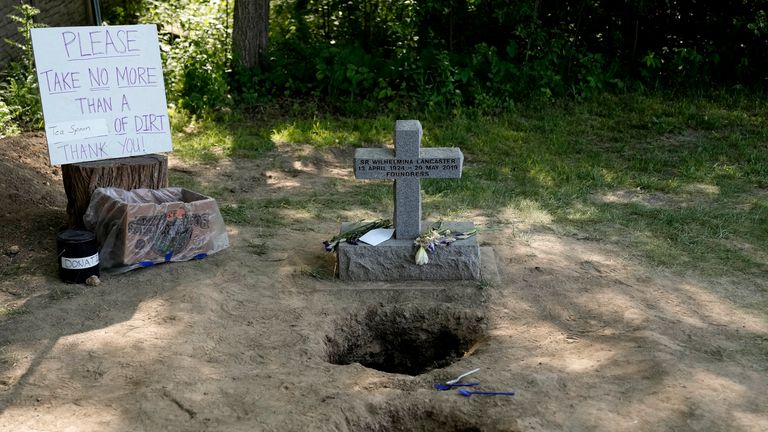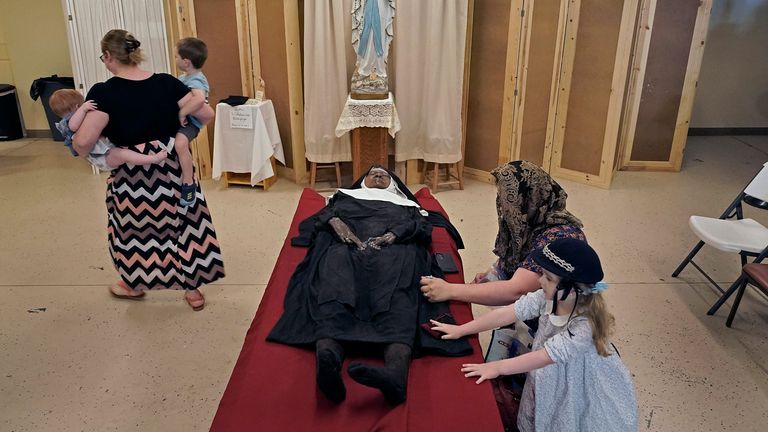A nun whose body has barely decayed since her death has unintentionally attracted hundreds to the site of her burial in a small US town.
People from all over the US travelled to Gower, Missouri, to witness the body of Sister Wilhelmina Lancaster – unexpectedly found intact after being exhumed in April by nuns of the Benedictines of Mary, Queen of Apostles order.
The visitors were able to see and touch her corpse which has hardly decomposed since her burial in 2019.
They were also allowed to take a teaspoon of dirt from her grave.
Sister Lancaster, a founder of the order, was buried four years ago without any embalming – the act of preserving a corpse by treating it with chemicals – in a plain wooden coffin.
She was exhumed by the monastery in preparation for a new shrine to be installed involving her “reinterment” and was discovered with “a perfectly preserved religious habit”, according to the nunnery’s statement.
Around 1,800 people flocked to the town after a private email mentioning the news mistakenly went public and the “news began to spread like wildfire”.
A visitor from Kansas City, Missouri, Samuel Dawson visited the site and described it as “very peaceful” and “very reverent”.
Mr Dawson, who is Catholic, said the nuns let visitors touch Sister Lancaster because they “wanted to make her accessible to the public, because in real life, she was always accessible to people”.
The phenomenon has been described as a Catholic sign of holiness by some, though scientific explanations for the lack of decay have been offered too.
The Diocese of Kansas City-St Joseph said: “The condition of the remains of Sister Wilhelmina Lancaster has understandably generated widespread interest and raised important questions.
“At the same time, it is important to protect the integrity of the mortal remains of Sister Wilhelmina to allow for a thorough investigation.”
Read more:
Man prises crocodile’s jaws off his head in miraculous escape
Mother pleads guilty to murder after six-year-old son starves to death
Below is an image of the nun’s body from afar.
The case for sainthood due to the body’s “incorruptibility” – a belief of staving off decomposition as a sign of holiness – had “not been initiated” yet, added the diocese.
This was confirmed by the Benedictines who said Sister Lancaster had not yet reached the required minimum of five years since death for the sainthood process to begin.
Meanwhile, Rebecca George, an anthropology tutor at the Western Carolina University, said the body’s lack of decomposition might not be that rare.
She said that coffins and clothing help to preserve bodies.
She added: “Typically, when we bury people, we don’t exhume them. We don’t get to look at them a couple years out.”
“With 100 years, there might be nothing left. But when you’ve got just a few years out, this is not unexpected.”
The monastery is to place the corpse in a glass shrine in the church, where visitors will still be able to see it and collect dirt from her grave, but not touch her.


